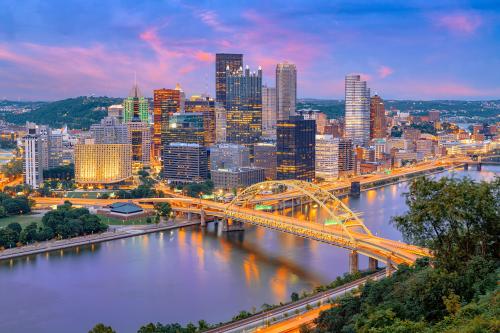How would you like an extra 60 hours off from work? The average local commuter wastes that much time stuck in traffic annually. Suppose that reduced travel time was accompanied by better maintained roads, cleaner air and a faster, more reliable transit system?
Sound too good to be true? It might not be if the Washington area pioneers a new way of financing transportation — pricing road use by vehicle miles traveled (VMT) with higher fees for using congested roads. This opportunity reflects innovative thinking about transportation financing in response to growing concern about infrastructure maintenance, climate change and the inefficiencies caused by congestion.
For decades, congestion has been trapping more people in their cars. From 2000 to 2005 the annual delay per traveler in the Washington area rose by a whole workday, to second worst in the nation. At the same time, highway and transit modernization is seriously underfunded. The federal gas tax — the primary source of revenue — is not indexed to inflation and has not increased since 1993. And states are reluctant to raise their gas taxes. With more fuel-efficient vehicles, revenues fell even as vehicle miles rose.
A better solution that would address both the congestion and financing problem would be road-use pricing that varies with congestion. Drivers would directly pay for the costs they impose on others. These charges would vary with VMT, the level of congestion, and the type of vehicle. The Congressional Budget Office recently confirmed that such pricing would reduce congestion, result in shorter and more reliable travel times, and enable governments to make more efficient infrastructure investments.
Road-use pricing is not a new idea, but it is gaining popularity as congestion increases, funding decreases and technological advances make implementation easier. However, two strong arguments against road-use pricing must be addressed, especially if differential charges are high enough to reduce congestion significantly.
First, lower-income motorists would suffer differentially. Higher-income drivers are more willing and more able to pay the congestion fees. Lower-income drivers would be forced into less convenient options. Second, tracking road-use threatens individual privacy. Current tolling systems such as E-ZPass already address this issue, and motorists should receive at least the same legal protections.
The federal government should test a road-use pricing program in a major metropolitan area before introducing it nationally — and the Washington area would be ideal. Federal employees would be able to get to work more efficiently, and the national capital would become even more attractive as congestion and pollution fell, and transportation infrastructure improved.
The system might work like this: Vehicles would be fitted with a GPS device to record distance traveled, time and location of travel, and type of vehicle. This data would be sorted into various toll categories, and the device would wirelessly upload the totals to the gas pump when the motorist refueled. The pump would significantly discount the gas tax and add the appropriate road-use fees to the fuel bill. To further protect privacy, only category totals would be communicated to the governing agency via the pump. Tourists and others lacking the transponder would pay the full gas tax. Travel outside the area would not be recorded.
Resources for the Future calculated that the charges under a similar policy for the Washington area would average 9.3 cents per mile. They estimated an 11 percent reduction in VMT, 19 percent less emissions of volatile organic compounds and 17 percent less carbon monoxide. The estimated social welfare benefits (reduced congestion, pollution, accidents, etc.) of this reduction in driving were estimated at the equivalent of $1.1 billion — even before the revenues were disbursed.
Revenues should be used to mitigate inequality and improve transportation options. Net revenues could be split among programs to improve mass transit (particularly buses), a need-based refund and highway maintenance. It would be particularly important to increase and improve transit and reduce its vulnerability to fluctuations in federal, state and local government funding.
Substituting road-use pricing for the gasoline tax would reduce automobile travel times and greenhouse gas emissions, improve transit options and make metropolitan areas more pleasant and more sustainable places to live and work. The Washington area — with the support of the federal government — should jump at any chance to be the first metropolitan area to volunteer.


Commentary
Op-edRoad-use Fees Could Solve Our Transit Woes
May 1, 2009